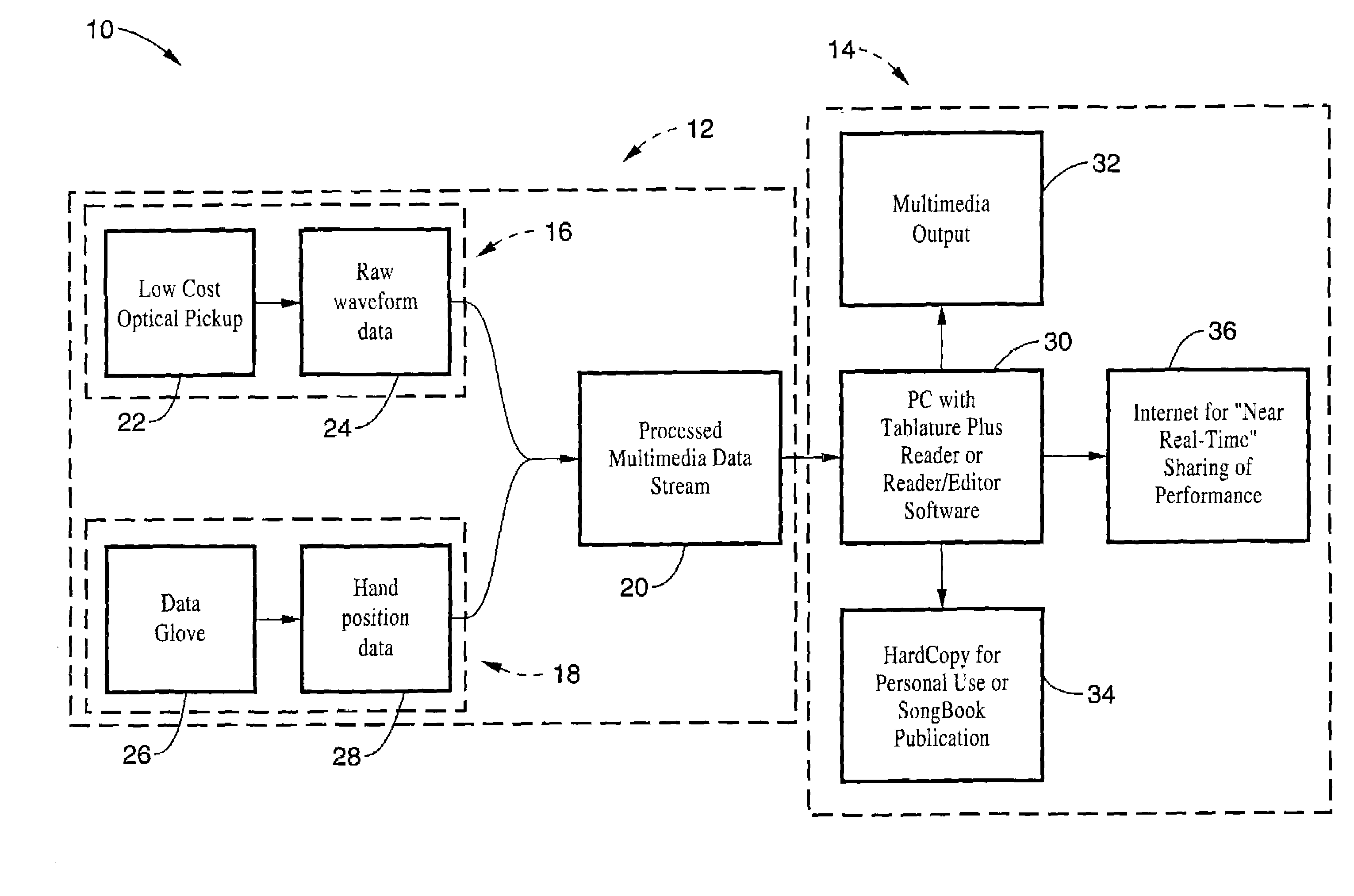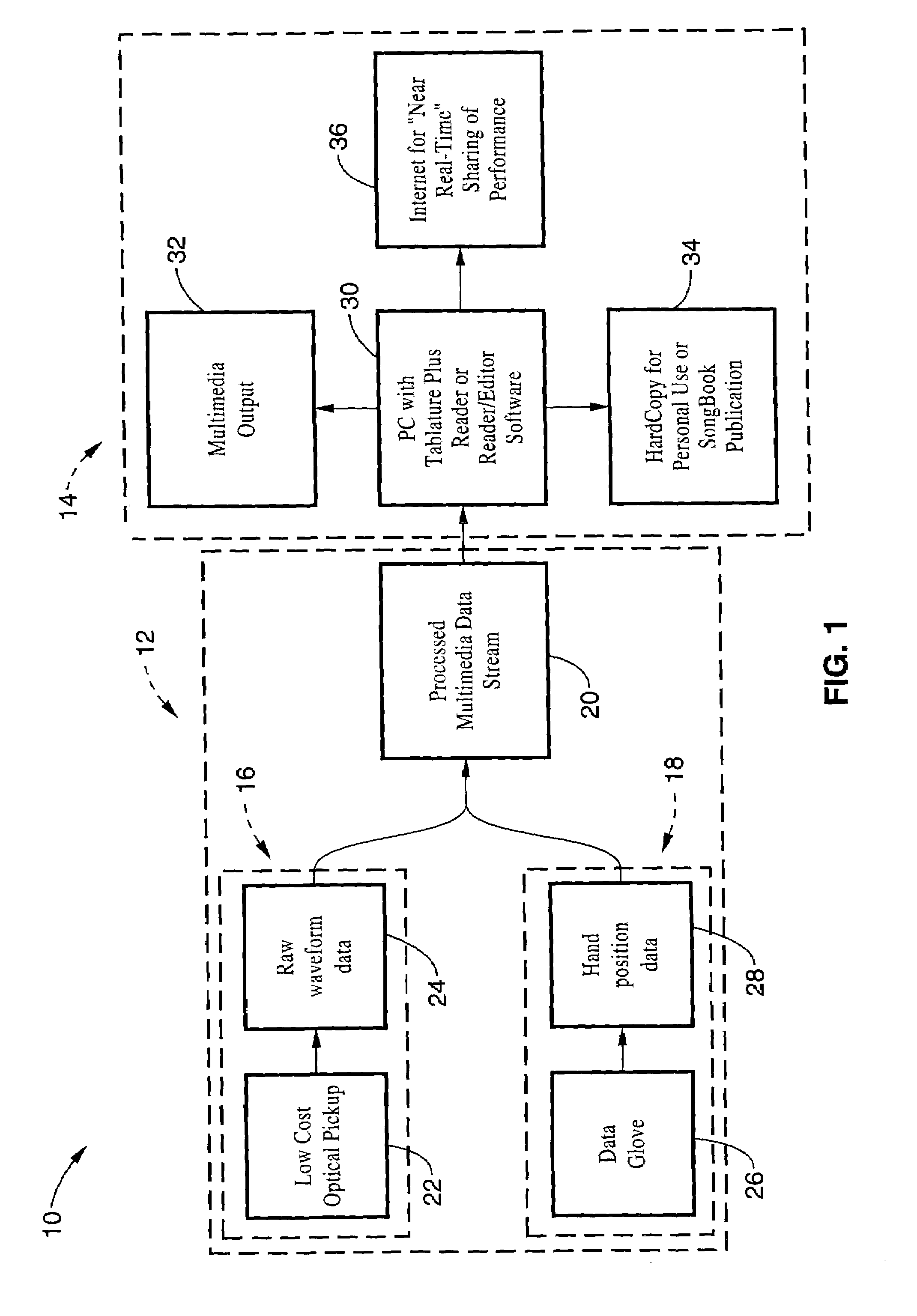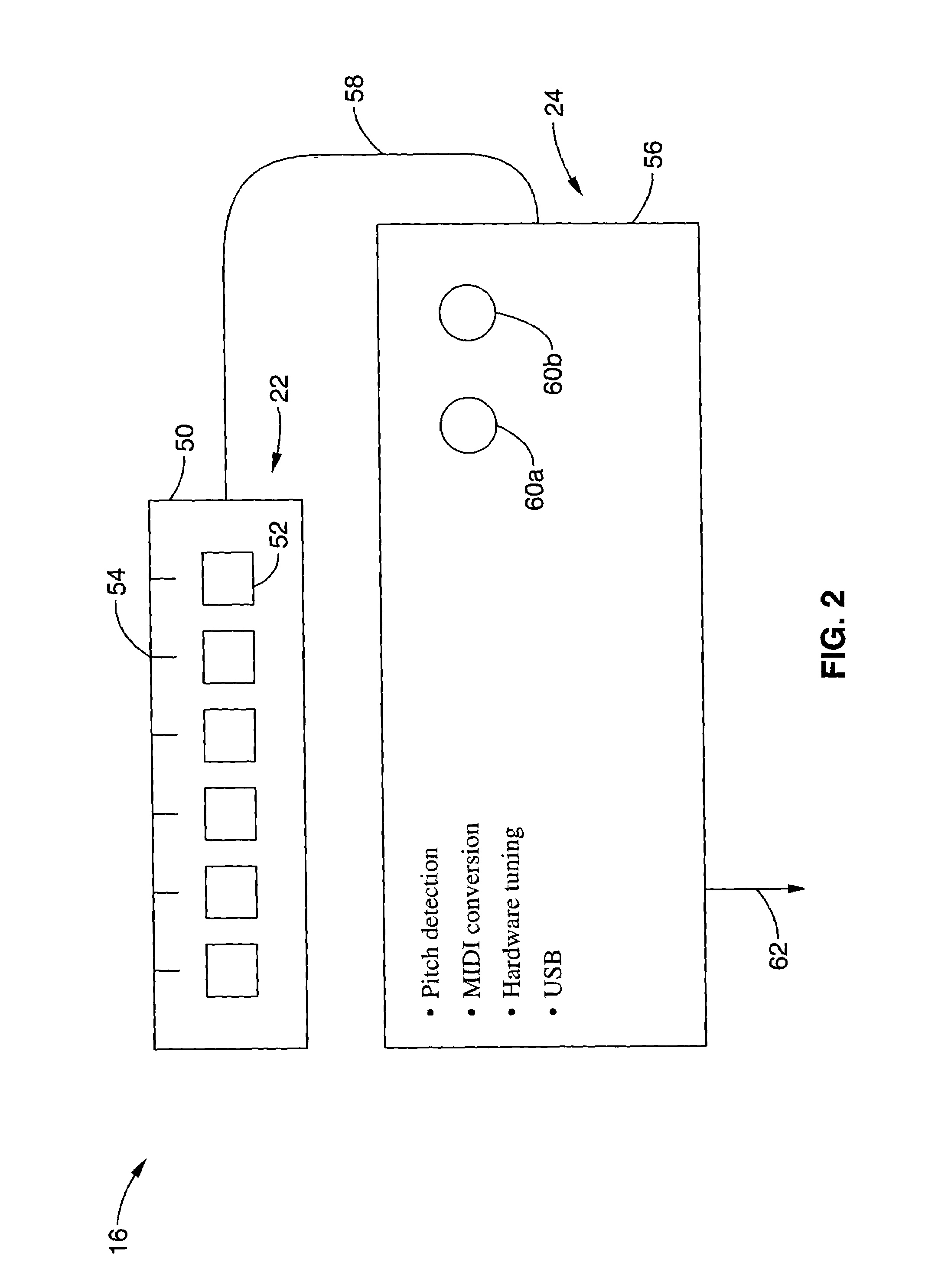Method and apparatus for sensing and displaying tablature associated with a stringed musical instrument
a stringed instrument and tablature technology, applied in the field of learning to play stringed instruments, can solve the problems of difficult to hear, deconstruct, replicate by ear the performance of another guitarist, complex structure, etc., and achieve the effect of reducing the difficulty of learning to play
- Summary
- Abstract
- Description
- Claims
- Application Information
AI Technical Summary
Benefits of technology
Problems solved by technology
Method used
Image
Examples
Embodiment Construction
[0099]Referring more specifically to the drawings, for illustrative purposes the present invention is embodied in the apparatus generally shown in FIG. 1 through FIG. 36. It will be appreciated that the apparatus may vary as to configuration and as to details of the parts, and that the method may vary as to the specific steps and sequence, without departing from the basic concepts as disclosed herein.
1. Overview of Architecture.
[0100]FIG. 1 depicts a representative block diagram for the present invention 10 showing the generation 12 of Tablature Plus and the reading of the generated Tablature Plus 14 data within a player application for providing multimedia instruction as described within the present invention, along with other forms of distribution.
[0101]Tablature Plus generation 12 is shown comprising the combination of data streams from a pickup 16, such as an optical pickup, and from an optional data glove 18, or similar mechanism for collecting data about the motions, preferabl...
PUM
 Login to View More
Login to View More Abstract
Description
Claims
Application Information
 Login to View More
Login to View More - R&D
- Intellectual Property
- Life Sciences
- Materials
- Tech Scout
- Unparalleled Data Quality
- Higher Quality Content
- 60% Fewer Hallucinations
Browse by: Latest US Patents, China's latest patents, Technical Efficacy Thesaurus, Application Domain, Technology Topic, Popular Technical Reports.
© 2025 PatSnap. All rights reserved.Legal|Privacy policy|Modern Slavery Act Transparency Statement|Sitemap|About US| Contact US: help@patsnap.com



